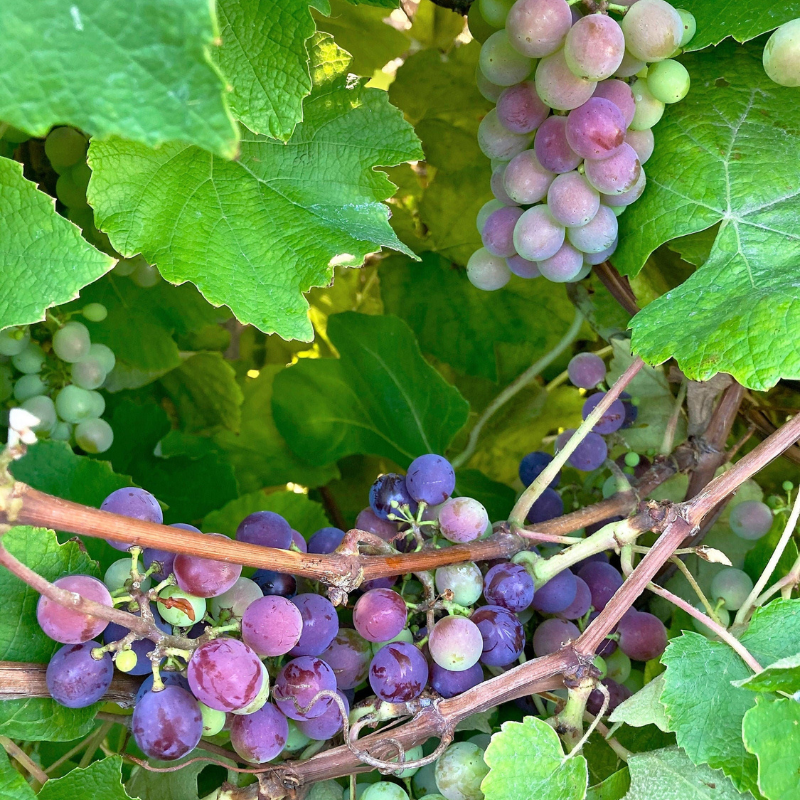- Historical context: Concord grapes are a variety of grape that was developed in the mid-19th century.
- Geographical origination: They were first cultivated in Concord, Massachusetts, USA.
- Relevant cultural significance: Concord grapes are significant in American culture, particularly for their use in grape juice, jelly, and wine.
- Time period of discovery: The Concord grape was developed in 1849 by Ephraim Wales Bull.
- Original habitat: The original habitat includes the northeastern United States, where the climate is suitable for grape cultivation.
- Notable historical uses: Historically, Concord grapes have been used for making grape juice, jelly, and wine. They were also used in traditional medicine for their health benefits.
- Ideal temperature range: Concord grapes thrive in temperatures ranging from 60°F to 85°F (15°C to 29°C).
- Soil type: They prefer well-drained, loamy soil with a pH between 5.5 and 7.0.
- Sunlight requirements: Full sun is essential for optimal growth, requiring at least 6-8 hours of direct sunlight per day.
- Watering needs: Regular watering is necessary, especially during dry periods. However, avoid waterlogging as it can damage the roots.
- Planting season: The best time to plant Concord grape seeds is in the spring after the last frost.
- Germination time: Germination can take anywhere from 2 to 8 weeks.
- Growth cycle duration: It typically takes 3 to 4 years for Concord grapevines to produce fruit.
- Common pests and diseases: Common pests include grape berry moths, Japanese beetles, and aphids. Diseases such as powdery mildew, downy mildew, and black rot can also affect the vines.
- Companion planting advice: Good companion plants include garlic, onions, and marigolds, which can help deter pests.
- Common challenges and solutions: Challenges include managing pests and diseases. Regular monitoring and the use of organic pesticides can help. Proper pruning and training of the vines are also crucial for healthy growth.
- Nutritional values: Concord grapes are rich in vitamins A, C, and K, as well as antioxidants like resveratrol.
- Health benefits: They are known for their anti-inflammatory and heart health benefits due to their high antioxidant content.
- Culinary uses: Concord grapes are commonly used to make grape juice, jelly, and wine. They can also be eaten fresh or used in desserts.
- Medicinal uses: Traditionally, Concord grapes have been used to boost the immune system and improve cardiovascular health.
- Other unique advantages: Concord grapes are known for their distinctive, sweet flavor and are often used in products that require a strong grape taste.




















